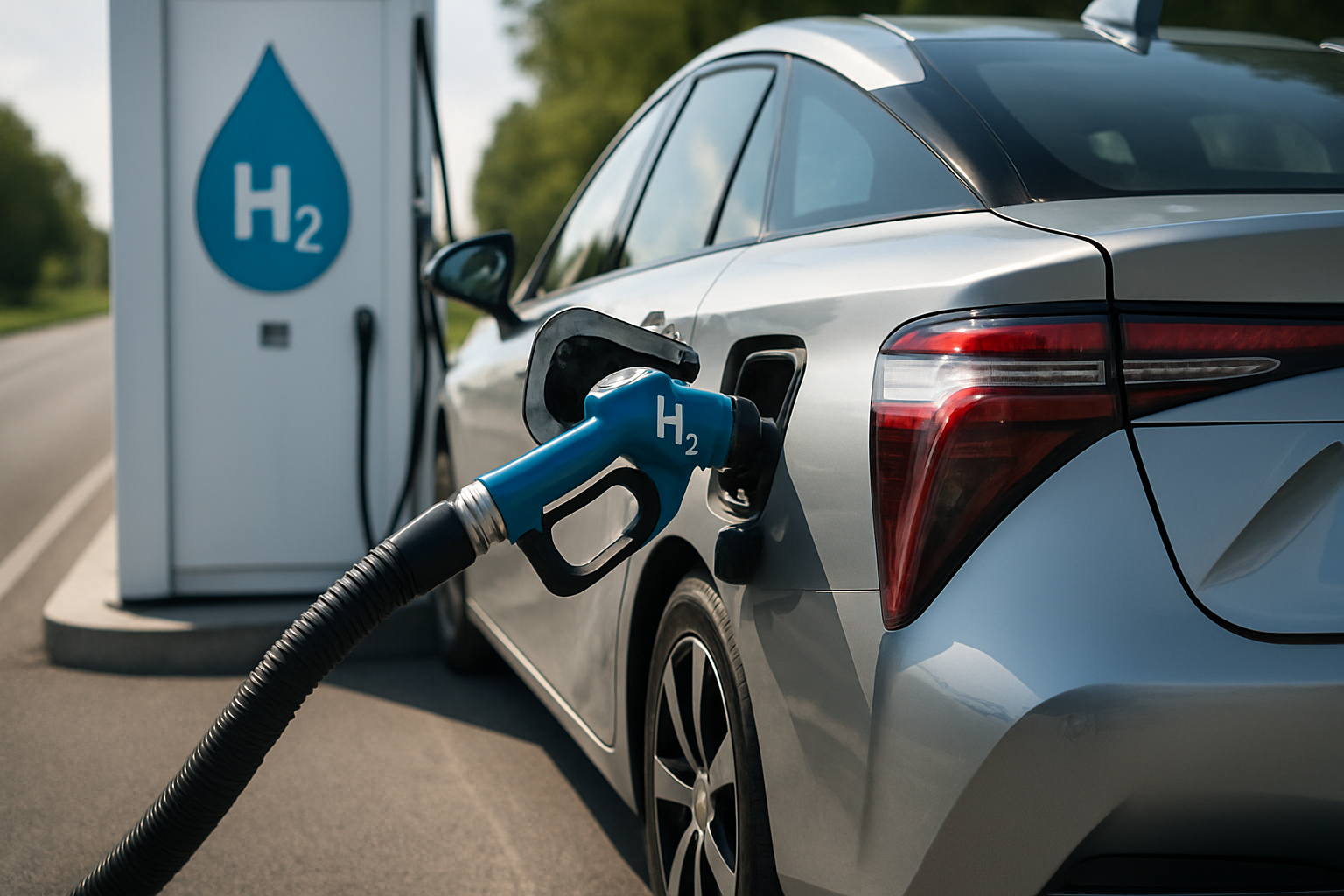Hydrogen Fuel Cells: The Next Frontier in Automotive Propulsion
In the ever-evolving landscape of automotive technology, hydrogen fuel cells are emerging as a promising alternative to traditional combustion engines. This cutting-edge propulsion system offers a unique blend of zero-emission performance and long-range capability, potentially revolutionizing the way we think about sustainable transportation. As automakers and researchers continue to refine this technology, hydrogen fuel cells could play a pivotal role in shaping the future of the automotive industry.

A Brief History of Hydrogen in Automotive Applications
The concept of using hydrogen as a fuel source dates back to the early 19th century, but it wasn’t until the mid-20th century that serious research into hydrogen fuel cells for vehicles began. NASA’s space program played a crucial role in developing fuel cell technology, using it to power spacecraft systems during the Gemini and Apollo missions. In the automotive sector, General Motors introduced the world’s first fuel cell vehicle prototype, the Electrovan, in 1966. However, it would take several more decades before the technology became viable for consumer applications.
Advantages of Hydrogen Fuel Cell Vehicles
One of the most significant advantages of hydrogen fuel cell vehicles is their quick refueling time, comparable to that of traditional gasoline-powered cars. This addresses one of the main drawbacks of battery electric vehicles, which can take hours to charge fully. Additionally, hydrogen fuel cell vehicles offer longer driving ranges than most electric vehicles, making them particularly suitable for long-distance travel and commercial applications like trucking and public transportation.
Infrastructure Challenges and Solutions
The widespread adoption of hydrogen fuel cell vehicles faces a significant hurdle: the lack of refueling infrastructure. Unlike the electrical grid, which is already ubiquitous, hydrogen fueling stations are scarce in most parts of the world. However, several countries, including Japan, Germany, and South Korea, are investing heavily in building hydrogen infrastructure. In the United States, California leads the way with a growing network of hydrogen stations, demonstrating that with proper planning and investment, this challenge can be overcome.
Advancements in Fuel Cell Technology
Recent breakthroughs in fuel cell design and materials science are making hydrogen propulsion more efficient and cost-effective. Researchers are developing new catalyst materials that reduce the reliance on expensive precious metals like platinum, potentially lowering production costs. Additionally, improvements in membrane technology are increasing the power density and durability of fuel cells, extending their lifespan and performance in automotive applications.
Environmental Considerations
While hydrogen fuel cells produce zero emissions at the point of use, the environmental impact of hydrogen production must be considered. Currently, most hydrogen is produced through steam methane reforming, which relies on fossil fuels and generates carbon dioxide. However, the rise of green hydrogen, produced through electrolysis powered by renewable energy sources, offers a truly sustainable pathway for hydrogen fuel cell vehicles. As renewable energy capacity grows, the potential for clean hydrogen production increases, making fuel cell vehicles an increasingly attractive option for environmentally conscious consumers and policymakers.
The Role of Hydrogen in Commercial Transportation
The heavy-duty transportation sector, including long-haul trucking and buses, stands to benefit significantly from hydrogen fuel cell technology. The high energy density of hydrogen and the quick refueling times make it particularly well-suited for vehicles that need to cover long distances with minimal downtime. Several major truck manufacturers are already developing and testing hydrogen-powered semi-trucks, with some models entering commercial service in pilot programs around the world.
Synergies with Renewable Energy
Hydrogen fuel cells can play a crucial role in balancing the intermittent nature of renewable energy sources like wind and solar. Excess electricity generated during peak production periods can be used to produce hydrogen through electrolysis, effectively storing that energy for later use in fuel cell vehicles or other applications. This synergy between hydrogen production and renewable energy could help accelerate the transition to a more sustainable energy ecosystem.
The Future of Hydrogen in the Automotive Landscape
As the automotive industry continues to diversify its approach to sustainable mobility, hydrogen fuel cells are likely to carve out a significant niche, particularly in sectors where long range and quick refueling are critical. While battery electric vehicles may dominate the personal transportation market in the near term, hydrogen fuel cells could find their sweet spot in commercial and long-distance applications. The ongoing investment in research, development, and infrastructure suggests that hydrogen will play an increasingly important role in the automotive landscape of the future, offering consumers and businesses another viable option in the quest for clean, efficient transportation.





